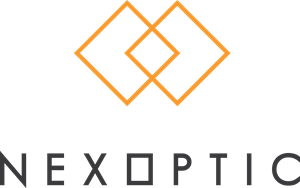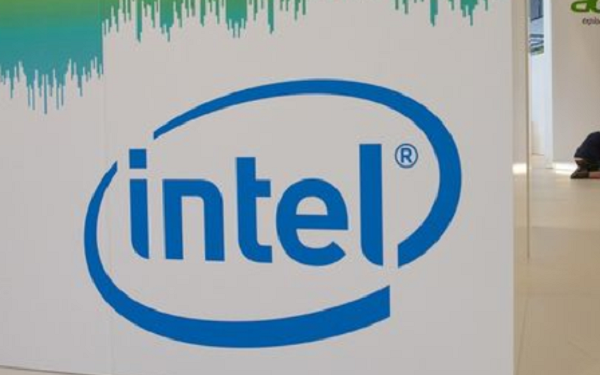
NexOptic Technology Corp (TSXV: NXO)
You’ll Never See The World The Same Way Again

Intel (NASDAQ:INTC) has agreed to sell its Nand memory unit to SK Hynix (OTC:HXSCF, OTC:HXSCL) for 10.3T South Korean won (~$9B), the Asian memory chipmaker says, confirming an earlier WSJ report.
The acquisition includes Intel’s solid-state drive, Nand flash and and wafer businesses as well as a production facility in the Chinese city of Dalian.
Shedding another non-core business could help Intel focus on fixing its chip technology woes.
Intel shares are down 10% over the past six months, while the benchmark Philadelphia Semiconductor Index has jumped 40%:
IBM (NYSE:IBM) reports Q3 results with revenue down 3% Y/Y to $17.56B, matching consensus estimates but marking the third straight quarter of revenue declines. IBM shares are down 1.1% AH.
Last week, IBM announced plans to spin off the managed infrastructure unit of the Global Technology Services business into a new company, allowing the legacy company to focus on the high-margin cloud business. The spinoff won’t finalize until the end of 2021, but it has already brightened the spotlight on IBM’s cloud performance.
“The strong performance of our cloud business, led by Red Hat, underscores the growing client adoption of our open hybrid cloud platform,” says Arvind Krishna, IBM CEO. “Separating the managed infrastructure services business creates a market-leading standalone company and further sharpens our focus on IBM’s open hybrid cloud platform and AI capabilities. This will accelerate our growth strategy and better position IBM to seize the $1 trillion hybrid cloud opportunity.”
Q3 Cloud and Cognitive Software (Red Hat, cognitive applications, transaction processing platforms) sales were up 7% Y/Y to $5.6B compared to the $5.4B consensus. Red Hat alone was up 17%, flat with the Q2 growth.
Total cloud sales were up 19% to $6B (Q2 growth: 30%).
Global Technology Services (infrastructure and cloud services, tech support services) sales were down 4% Y/Y compared to the 8% decline in Q2, coming in at $6.46B versus the $6.33B consensus.
Rounding out the business, Global Business Services (consulting, application management, global processing services) sales totaled $3.97B (consensus: $3.93B) and Systems (systems hardware and OS software) totaled $1.26B (consensus: $1.46B).
Adjusted gross margin was 49%, above the 48.6% consensus and the 48% in Q2.
Cash from operating activities totaled $15.8B with FCF of $10.8B (TTM).
Debt totaled $65.4B, including $20.9B of Global Financing debt.
Earnings call starts at 5 PM with a webcast here.
Verizon (VZ -1.3%) joins forces with Microsoft to create new ways to accelerate the delivery of fast and secure 5G applications, benefiting from reliable and low latency connections.
The collaboration brings Azure cloud and edge capabilities together with Verizon’s on-site 5G Edge.
Logistics and supply chain solutions company Ice Mobility is already testing on-site 5G Edge platform, integrated with Microsoft Azure.
“By leveraging Verizon’s 5G network integrated with Microsoft’s cloud and edge capabilities, developers and businesses can benefit from fast, secure and reliable connections to deliver seamless digital experiences from massive industrial IoT workloads to precision medicine,” said Yousef Khalidi, corporate vice president Azure for Operators at Microsoft.
AT&T (T -1.7%) CEO John Stankey says a recent shakeup at WarnerMedia was “spot on,” and suggests that tech giants hold too much power over streaming distribution – a subject near and dear to the company’s high-stakes HBO Max launch.
HBO Max is drawing more viewers but still sits at a big disadvantage to tech companies, Stankey says at WSJ Tech Live. The company’s run into roadblocks in getting onto Amazon and Roku (ROKU +0.1%) platforms.
The pandemic has shown that networks are holding up well and Internet service providers are no longer the gatekeepers for online content, Stankey says – but that companies like Amazon.com (AMZN -2.1%) and Apple (AAPL -2.1%) should be probed for their power to restrict services on their platforms.
“We should ask ourselves, is that friction (in commercial agreements) somebody really feeling their oats and maybe having market power above and beyond what’s reasonable for innovation?” Stankey asks.
About 4.1M customers had activated HBO Max by the end of June – a fraction of the 36M or so subscribers paying for any form of HBO. Stankey says he’s pleased with engagement, though, with it “well beyond our objective of having over an hour of engagement.”
But “we still have work to get the scaling done,” he says, declining to update subscriber numbers. He also declined to comment on reports about AT&T offloading DirecTV or its advertising business.
As for the changes at WarnerMedia launched by its CEO (and former Hulu chief) Jason Kilar, that revamp has been “nothing short of significant and absolutely spot on in terms of the direction.”
The pandemic’s arrival means big swaths of the WarnerMedia revenue base “disappeared,” so “very quickly, it was very clear a new day had dawned.”
JinkoSolar (JKS +5.7%) shares surge to an all-time high after the company captures an order from German renewable project developer Juwi Hellas to supply the Kozani solar project in Greece, which the company says will be the largest bifacial solar project ever built in Europe.
JinkoSolar says it will deliver 204 MW of Swan bifacial modules with transparent backsheet from DuPont for the solar complex, with construction expected to begin in November 2021.
“The Kozani project will become Europe’s benchmark for renewable energy in terms of competitively priced and subsidy-free solar power,” says Frank Niendorf, General Manager of JinkoSolar Europe.
JKS shares have been on a tear, more than doubling in less than a month and soaring five-fold over the past year.